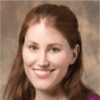I began my first day of teaching by engaging in one of my favorite pastimes—talking about sex. I was a novice adjunct professor who had been hired to teach a Human Sexual Behavior and Treatment course at my doctoral alma mater, Loma Linda University. Though some of the students were eager to study such a tantalizing topic, others at this religious school approached the topic with reticence. Many of the more hesitant students had never had sex themselves, had been raised without discussing sex in their homes, or had integrated negative ideas about sex into their worldviews. But because they were all in school to enter the field of psychology, and would be working with patients, my job was to prepare all of them to work effectively with clients.
After going over the syllabus, I told my class, “During this course, we will be talking about sex in a frank, open way. We will regularly use terms like ‘penis’ and ‘vagina,’ as well as other sexual terms that you are likely not used to saying in public spaces.” I paused to let the students’ inevitable titters and giggles subside, then smiled as I continued, “Yes, let’s get all those giggles out now!” I waited a moment, then said gently but seriously, “It’s better to get those giggles out here in class than in a room with a client. You will need to be comfortable talking about sex with your clients in order to help them with sexual issues. My hope is that you will all be comfortable with this by the end of our time together this term.”
Sex is a fundamental aspect of the human condition. Its presence, and even its absence, affect people’s thoughts, feelings, behaviors, and attitudes. Sex permeates culture, society, writing, music, art, and other forms of human expression. Sex can be found everywhere from tales of courtly love to tales of monarch-toppling treachery. It is something that unites us all.
Because sex is inextricable from our lives, it is imperative that clinicians are trained to discuss, understand, diagnose, and treat sexual concerns. Clinicians must guide clients to live their sexual lives in a healthy way. Because any client could bring up sexual topics in therapy, sexual knowledge and sex therapy techniques are handy tools for any clinician to have in their treatment arsenal.
Sex therapy techniques are designed to help clients with sexual functioning, intimacy, and relationships. They can be used with individual clients, couples, or those who engage in other sexual configurations such as polyamory. All therapists should complete a thorough sexual history intake with clients and refer them to physicians to rule out physical causes before proceeding with sex therapy. Sometimes sex therapy can be as simple as providing psychoeducation about sexual anatomy and physiology, the sexual response cycle, or typical sexual behavior. In addition, clients often have to unlearn harmful misconceptions about sex, including what is considered “right” and “wrong.”
All clinicians, regardless of whether they practice traditional therapy or sex therapy, must be prepared to tailor treatment strategies to clients’ needs. This flexibility often results in satisfying breakthroughs. Some of my most memorable breakthroughs have involved traditional sex therapy techniques, such as gradually using sensate focus exercises to help a sexually anxious woman open up to her husband physically. Other memorable experiences involved some quirky creativity, like the time I helped a deeply Christian male client decrease his excess pornography use by having him strategically place a picture of Jesus’ beatific face in a prominent spot next to his computer monitor. Because I was trained, I was both comfortable and knowledgeable enough to help these clients with sexual concerns. I hope all my students will grow into this comfort and knowledge.
One might expect sexuality and sex therapy to be featured facets of any doctoral psychology program’s curriculum, but unfortunately, countless psychologists have had woefully inadequate preparation for dealing with clients’ sexual issues. Many programs do not have a sexuality course at all, and of the ones that do, many only offer a cursory overview of the subject. Even most pre-licensure trainings relay only a general fund of sexual knowledge to future therapists as opposed to an in-depth examination of therapeutic techniques.
I believe that all clinicians should talk about sex with their clients. One of my missions as a mentor of doctoral students is to model talking about sex in a confident manner. One way I do this is by leading the Los Angeles County Psychological Association’s Sexuality and Sex Therapy Special Interest Group. The group provides a forum for mental health practitioners to learn from expert guest speakers and engage in passionate discussions about sexual topics. Another way is with my podcast through The Chicago School, “Let’s Talk About Sex,” which is my attempt at normalizing healthy sexual behavior and talking about sex in an authentic, informative, and approachable manner. I am eager to release additional content and share more of my passion for the subject with the larger community.
I cannot help but recall those students from my first human sexuality class. Though many of them became comfortable with talking about sex, some remained reluctant despite increases in knowledge and competence. A single class cannot always undo years of habit. I have a fond memory of one student from that class who started as more timid, but came to me a year later and said, “I started your class thinking I would probably never talk about sex like that with a client, but I used a technique from your class with one of my clients this year, and it worked! I’m so proud of myself! Thank you for teaching us.” Her palpable excitement still puts a smile on my face. I hope that more clinicians will join me in the celebration of healthy sex.
 Laura Prescott, Psy.D., is currently the director of clinical training and an associate professor in the Clinical Psy.D. Department at the Los Angeles Campus of The Chicago School. Some of her areas of interest include human sexuality, clinical training and supervision, teaching pedagogy, the psychology of creativity and the arts, eating disorders, obsessive-compulsive disorder, and geropsychology.
Laura Prescott, Psy.D., is currently the director of clinical training and an associate professor in the Clinical Psy.D. Department at the Los Angeles Campus of The Chicago School. Some of her areas of interest include human sexuality, clinical training and supervision, teaching pedagogy, the psychology of creativity and the arts, eating disorders, obsessive-compulsive disorder, and geropsychology.
Learn more about The Chicago School
Explore more information about our programs available at The Chicago School today by filling out the form below to request more information. You can also apply today through our application portal.

